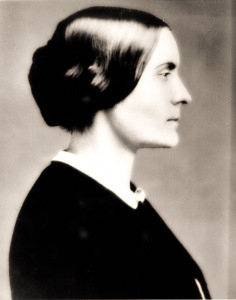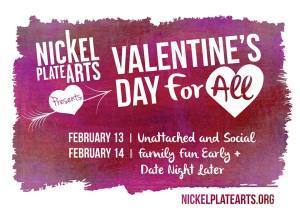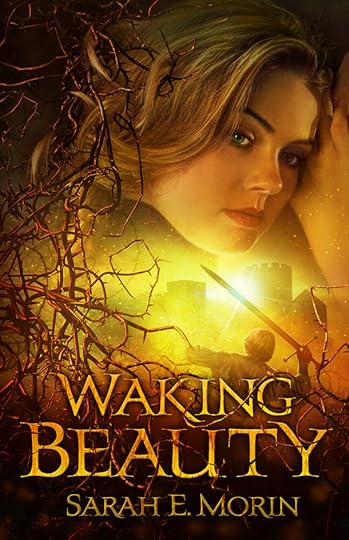Sarah E. Morin's Blog, page 14
March 12, 2015
Horses: Fresh Takes on Old Standards
So last month I wrote a blog which complained that 90% of fantasy worlds use horses. But I repent. A little. There are some fresh takes. Here are some unusual versions of horses or equine creatures in fantasy:
Unhitched carousel horses in Mary Poppins. Hop into a chalk drawing, join a fox hunt, win a derby, and why, all I can say is, it’s supercalifragilisticexpialidocious.

Image courtesy of Simon Howden at FreeDigitalPhotos.net
Maximus in Tangled. This horse is smarter than the palace guards, and more dedicated to hunting criminals. Also thinks he’s a bloodhound.
Centaurs. They have ancient roots in Greek mythology. Which half prevails – wise human or dumb beast? I enjoy the arcane dignity in Rowling’s depiction in Harry Potter . I also enjoy the simple-minded centaurs in Gail Garson Levine’s Ella Enchanted.
Hippogriffs in Harry Potter. Rowling’s creation blends eagle and horse. They escape death sentences! Assist in rescue missions! And bite Draco Malfoy! What’s not to love?

image by Tina Phillips freedigitalphotos.net
My Little Ponies. A friend and I watched the original 1980s TV show recently. Only as an adult do I appreciate how unbalanced this series is. It covers everything from human trafficking (well, pony trafficking) to adopting puppies. But what a marketing coup! You can pick regular ponies, princess ponies, seaponies, baby ponies, flutterponies, ponies with gems for eyeballs…

image by sattva at freedigitalphotos.net
Mercades Lackey’s Valdemar books. A whole series based on humans who bond with magical horses.
The Last Unicorn. This odd little animated movie from the ‘80s is a cult classic. Our heroine makes a great unicorn and a lousy human. I like the angle—not everyone thinks becoming human is an upgrade.
Bree (full name: Breehy-hinny-brinny-hoohy-hah) in C. S. Lewis’s The Horse and His Boy. This is my personal favorite of the Narnia books. Bree doesn’t belong to a human – the human belongs to him. Get it straight.

image by Maggie Smith at freedigitalphotos.net
THE ENTIRE NATION OF ROHAN in Lord of the Rings. An entire culture centered around horses: their military, their banners, their names. Eat your heart out, equestrians.

image by prozac1 at freedigitalphotos.net
What are your favorite examples of horses in fantasy? Leave a comment.

March 10, 2015
Rage, rage against the dying of poetry recitations
Two items sparked my interest this past weekend. First, I read Ally Condie’s YA dystopia, Matched. Among the Society’s other sins is cutting down the number of poems in the world to 100. Otherwise, it’s just information overload, you know? Our heroine, Cassia, is given a hidden (and very illegal) copy of Dylan Thomas’s Do Not Go Gentle Into that Good Night.
The poem forms not only thematic focus for the book, but author Ally Condie honors the very music of the words themselves. Even when our heroine does not understand exactly what the words mean, the phrases hold a kind of mysterious magic. There is power in speaking them aloud. Not a fantasy world power, precisely, the same power you or I can find when we connect to that perfect poem.

Image courtesy of Phiseksit at FreeDigitalPhotos.net
Cassia must burn the poem to protect herself, but so she doesn’t forget it, she secretly tells it to another character, line by line.
Oh, the power of the spoken poem!
I have tried writing this form, by the way, and I convinced they are called villanelles because they are villainously hard to write. Listen to the recurring phrases, coming back like waves, some crashing, some just lapping at your toes.
Do not go gentle into that good night.
and
Rage, rage against the dying of the light.
It’s really hard to find a phrase anyone wants to hear so many times in a single poem, and make it mean something slightly different each time. Yet when done correctly, how powerful this poem is, especially spoken aloud. And in a British accent.
Once upon a time, a good education included memorizing poetry. When I played a Victorian schoolteacher at a living history museum, I periodically hosted poetry recitations with my “pupils.”
Winston Churchill was one of the last and most famous examples of the benefits of such a Victorian education. Throughout his life, he would break out into lengthy passages of poetry upon the smallest excuse, much as actors break into song in musicals. In one of my favorite scenes from the movie The Gathering Storm, Churchill expresses his anger that no one believes him about the threat from Hitler. He swells up and recites,
Who is in charge of the clattering train?
The axles creak, and the couplings strain.
…
For the pace is hot, and the points are near,
And Sleep hath deadened the driver’s ear;
And signals flash through the night in vain.
Death is in charge of the clattering train!

Image courtesy of graur codrin at FreeDigitalPhotos.net
It is well worth watching Albert Finney perform the role for this scene alone. The poem is Death and his brother by Edwin James Milliken, and yes, Churchill was known to recite it whenever he felt the occasion called for it.
I wish I had such an arsenal of poetry to draw from. I do recite some poetry, my own and others. Yet I am given to humorous delivery. Give me something with bad puns and wit. I can recite Ogden Nash, Shel Silverstein, and TV commericals.
In a way, movie and TV quotes have become our recitations. We can no longer quote long passages of Victorian poetry, like Churchill. But when one of my Facebook friends posted a single line from an 80s movie, without the title or character, a dozen friends chimed in with comments of other quotes from the movie. Movie allusions are our common language, that other source of shared art we draw upon to express what cannot be expressed in straightforward language.
So is the art of poetry recitation dying?
I performed in a poetry reading recently at Nickel Plate Arts, with the theme of love. About eight local poets brought our work. Most poets I know have very a great self-deprecating humor about poetry readings. We shower affection on any audience member who attends that we don’t already know by name. And rest assured, we will know them by name before they leave.
So I was pleased that for this event (which also featured art and cello music) we had about 100 people pass through. But I was most pleased by the poets, because about half of us were high-schoolers. A teenager’s perspective on love was quite a different thing than that of our retired English teacher, who has been married to the love of his life for decades. But that wasn’t the biggest difference.
The adults all read our poems. The teens recited.
As in, they’d memorized their poems (and performed them splendidly). I think we ancient ones surprised them when we stood up shamelessly with our words in front of us. Yes, children, it’s legal to bring your paper up on stage, but what you did, that’s a beautiful art form as well. To read a poem aloud is to taste the words on your tongue. To memorize a poem is to steep your soul in a brew of words.
In fact, it’s our teens who seem to be keeping the art of poetry recitation alive. At least, that’s what my second discovery of the weekend would indicate. I found a news article that Emma Libersky of Plymouth High School has won the Indiana State Poetry Loud Contest 3 years in a row. I don’t know this young lady, but if the youtube videos of others in the National Contest are any clue, she’s one talented artist.
Take this one of last year’s national winner, Anita Norman.
Wow! I think her voice and presentation are as good as Dylan Thomas’s. And she’s not even British.
So, okay, I love my movie quotes, too. I can rattle off more lines from Spaceballs than from Dylan Thomas. But I think there is still value in reciting poems. Will you help me rage, rage against the dying of poetry recitations by memorizing a poem today? The art of the poetry recitation is, indeed, not dead. If we get more people like Miss Anita Norman, it may not even be mostly dead (which is slightly alive).
And if you can name what I just quoted, you may have proved my point for the need…

March 1, 2015
Will boys read books with girls as main characters?
Passing along an interesting blog by Shannon Hale. I admire this author of fantasy and have reviewed multiple books of hers, including The Goose Girl, Enna Burning, River Secrets, and Forest Born. My favorite? Book of a Thousand Days.
Hale relates her experience speaking about one of her books at a school. Just because the word “princess” was associated with the book, the school administrators assumed boys wouldn’t be interested and excluded them from the chance to hear a live author speak about the craft of writing. You can read about her post here: No Boys Allowed: School visits as a woman writer.
Have you heard this theory?
“Girls will read books about boys, but boys won’t read books about girls.”

image by stockimages at freedigitalphotos.net

image by imagerymajestic at freedigitalphotos.net
I sure have! Do you agree? I’m not sure I do. I work with both boys and girls ages 10-18. Many of them are avid readers. You know who introduced me to Tris (from Veronica Roth’s Divergent series, with a strong female lead)? A boy. Who introduced me to Katniss from The Hunger Games? A boy.
So is the presumption boys will read books with female main characters if said books are dystopian or action-oriented? I don’t think that’s fair, either. I went to college with two guys who could quote Jane Eyre more extensively than I could (and that’s saying something). And no, before you ask, good taste in classic 19th Century Brit Lit has nothing to do with sexual orientation.
We should strive to encourage an appreciation of all genres of literature, regardless of the gender of the protagonist or the reader. To say, “boys don’t read books about girls,” and then not expose them to any such books, well, that’s a self-fulfilling prophecy. It’s as insulting as certain educational theories on girls 200 years ago, when most girls were actively discouraged from pursuing arithmetic or science, and then experts announced that the female brain was not capable of learning these topics.
Maybe the word “princess” implies crowns and glitter? If so, I wish people would see beyond the connotations. Shannon Hale’s excellent Princess Academy had not one particle of glitter that I recall. Instead, it said a lot about community, identity, family, and good old teenage rebellion, told with delightful humor. And it was a Newbery Honor Book, among many other awards! Should male students be discouraged from hearing a Newbery author when she comes to their school, if the book features girls?
I am especially invested in this question since I am publishing a “princess book.” Waking Beauty is a spin-off (no pun intended) of Sleeping Beauty. Various readers have told me my prince is the main character, and others that Sleeping Beauty is. I love my main characters equally. I’d have no plot if one of them went AWOL. I confess, I suspect most of my readers will be female. But does that make me realistic (it’s wise to know your market, right?), or unwittingly guilty of the very prejudice Shannon Hale speaks of in her blog? I am being unfair to potential male readers?
What do you think? Will boys read “girl” books? How can we defeat the reader stereotypes?

image by imagerymajestic at freedigitalphotos.net

February 21, 2015
Waking Beauty Book Trailer
February 15, 2015
Susan B. Anthony and Frodo
She’s still my heroine, I think. Although the more I study history, the more people I add to the list of People I Admire.
Abigail Adams
John Adams
John Quincy Adams
William Wilberforce
Sojourner Truth
Eleanor Roosevelt
Truman
Churchill
Jane Austen
Elizabeth Cady Stanton
Lincoln
MLKJ
Seward
Temple Grandin
C.S. Lewis
Mister Rogers
Frederick Douglass
I am afraid these are all Americans and Brits in the last 250 years. But there’s a reason I choose to work at history park set in the 1800s.
I admire the above to varying degrees and for varying reasons. For example, FDR I find aloof, hard to be fond of, exactly, but I am in awe of his handling of polio. Susan B. Anthony and William Wilberforce are some of my favorites all around. John and Abigail Adams are my favorite couple, and I like them even better as a unit than separately. John by himself got a little cheeky. Or in the words of 1776, my favorite musical, he was “obnoxious and disliked.”
Is there a common factor here, other than 2 nationalities? I am happy it is not race or gender. There are a bunch of creative people and politicians. Religious belief is partially a factor, but not entirely.
No, I think the biggest unifying factor is how long and hard each struggled either for or against something. So let’s say, endurance.
William Wilberforce struggled against slavery. Douglass and Truth actually were slaves at once time. Susan B. Anthony for women’s rights and black rights. Jane Austen, FDR, Churchill and Temple Grandin had medical conditions that should have slowed them down. They were productive anyway and often turned those weaknesses in strengths. Churchill, Eleanor, and Lewis dealt with grief or depression. Many on my list were compassionate about people, like Eleanor Roosevelt. Mister Rogers built up children in a career that spanned 40 some years. Many on my list dedicated their whole lives to a Cause. Both Susan B. Anthony and Eleanor Roosevelt said something to the effect of, “I want to live as long as I am useful, and not a minute longer.”
I had not thought to name Endurance as one of my key values. Sounds like a Value Tale. But it’s a very biblical thing. Paul talks about life in the service of Cause as a race. And Paul’s own life is a prime example of endurance.
And not to be flippant, but how many times when face with a looming deadline have I found myself quoting Dory the Fish from Finding Nemo?
Just keep swimming…
I think I have long valued stories of endurance, perhaps because I find it hard to cultivate myself. I grew up in a family where hard work was valued, at the expense of sleep, often times. And you should meet my tireless farming Grandpa when it comes to hard work. But I think also of Lord of the Rings, which I read in 7th grade.
My favorite two characters were Frodo and Sam. What my brother (and many others) found a long a tedious part of the series, I loved: Frodo and Sam, trudging one slow step at a time through Mordor. Their Cause? To throw the One Ring into Mount Doom and save Middle Earth, probably at the expense of their own lives. I could feel the weight pressing down on Frodo, the force working against him. I felt how tired he was, how easy it would be to abandon the quest, and take a long nap. And of course, he couldn’t have done it without Sam, his loyal friend. But when you are a small hobbit, why dare to think you can achieve anything so impossible?
Susan B. Anthony’s most famous quote is “Failure is impossible.” I love it, because it’s pithy, resolute, and easy to fit on a button. But you know, that’s not the whole quote.
“There have been others also just as true and devoted to the cause—I wish I could name every one—but with such women consecrating their lives, failure is impossible!”
This is Susan’s last public utterance, at the age of 86.
And if you read closely, success is contingent on two things—devotion (often lifelong) to a cause, and allies. I would not dare compare Elizabeth Cady Stanton to Samwise Gamgee, as Elizabeth was every bit as formidable as her friend and political partner, Susan. Yes, there are times you must stand alone (see Churchill in the 1930s). But I think we can safely say the success of both pairs, Frodo and Sam, Stanton and Anthony, hinged upon loyalty and blend of strengths of friends.
I hope I would not offend my heroine, Susan, if I envision her as a Quakerish hobbit, leaning on a loyal friend, and taking one more step toward Mount Doom.
Happy birthday, Susan. Thanks for your endurance.

February 14, 2015
Gaze at Me Over the Piano Again, Mr. Darcy
In honor of Valentine’s Day, a limerick about one of the greatest love stories in literature, Pride and Prejudice:
Jane Austen once gave birth
to a heroine of great mirth.
There’s truth in it:
we’d all be Miss Bennet

February 10, 2015
Love stories! See us Feb 14.
Some of my local poet and writer friends will be reading our works this Valentine’s Day!
Open mic 7-8pm.
Nickel Plate Arts
107 S. 8th Street
Noblesville, IN 46060
317-452-3690
There are many more Valentine’s Day (and anti-Valentine’s Day) events at Nickel Plate this wkd. Click the graphic to find out more.

February 5, 2015
Waking Beauty cover
I’m psyched to finally uncover my cover, as it were. Here’s the cover art for my book, Waking Beauty, coming out this May.
I’m delighted with the artwork of artist Kirk DouPonce. This cover is chock-full of Sleeping Beauty symbolism, from the dawn color scheme to the briars. I would not want briars weaving in and out of my own hair, but it’s a lovely effect on Brierly.
Brierly is my name for Sleeping Beauty, a derivation of some of the versions that refer to her as Briar Rose. She refuses to wake up and enjoys tormenting princes. Girl got issues, but I love her.
The guy with the sword is Arpien, a prince with a rescuer complex.
You can view Enclave’s Spring Releases here. My book gets to hang out with the work of talented people like Joseph Bentz, Kathy Tyers, and Morgan L. Busse. My book is leaping up and down like a puppy.
Don’t get caught sleeping! Preorder it now.

February 1, 2015
Jane Eyre vs. the Super Bowl
Like the stereotypical husband who always forgets his anniversary, year after year I too manage to forget a momentous annual event that my loved ones cherish.
The Super Bowl.
“That’s happening again?”
“Every year.”
“Who’s playing?”
I should never ask this question. First, it reveals my woeful ignorance of current events. Second, people have started lying to me for fun.
“It’s the Denver Broncos against the Peoria Dirt-Scoopers.”

Image courtesy of Naypong at FreeDigitalPhotos.net
I nod, because at least one of the names sounds familiar. Likely because “Broncos” is very close to the word “Bronte.”
“Great. Which one belongs to the NFL and which to the ACL?” (I like to toss around acronyms, even when I’m not sure they apply.)
“Uh, do you mean AFL? You’re thinking of a torn ACL, which is a kind of injury.”
“It’s easy to get confused. People get injured all the time in football.”
This is not my only vocabulary transgression. I was 23 before I figured out what a down was, despite 8 years of marching band.
I nod wisely when my friends talk about how they are faring in Fantasy Football, and envision dwarves tackling orcs.

Image courtesy of franky242 at FreeDigitalPhotos.net
I have been known to book fancy family dinners on Super Bowl nights, and wonder why it was so easy to get a reservation. I once tried to schedule a major interview at kickoff time.
But the full extent my mismanagement of priorities was revealed in 2007, and nearly estranged me from my entire home state. That was the year PBS aired the 2006 Masterpiece version of Jane Eyre (with Toby Stephens and Ruth Wilson) against the Super Bowl. The same year my hometown team, the Indianapolis Colts, won. I toggled back and forth the two channels, not because I really cared about the game, but out of a strong sense of civic duty. There are certain unspoken rules for loyal citizens of the United States. You vote, serve jury duty, and watch the Super Bowl when your home team makes it in.

Image courtesy of franky242 at FreeDigitalPhotos.net
I confess it was about 6 minutes of the Super Bowl vs. 106 of Jane Eyre.
Someone somewhere is asking, how can 19th Century British Literature be more exciting than the Superbowl? To which I reply, in the time it took the Colts to move the ball 10 yards across a patch of grass, a crazy lady escaped an attic, burned down a house, tried to fly, and left her husband a blind widower.

Image courtesy of arztsamui at FreeDigitalPhotos.net
Jane Eyre can take on the Super Bowl for sheer excitement level any day.
So this Sunday I’ll pop in my DVD and hang out with Mr. Rochester. He’s got the shoulders of a football player, at least.
“Young kid playing football” courtesy of Stuart Miles at FreeDigitalPhotos.net

January 30, 2015
Book review: Fairest: Levana’s Story
Marissa Meyer
Growing up I never thought of Snow White’s stepmother as one of the big baddies in fairy tale literature. Top 50, sure, but not one to win the Oscar for Best Villain.

Image courtesy of Danilo Rizzuti at FreeDigitalPhotos.net
With new versions of her in the TV show Once Upon a Time and the book, Fairest, I’m beginning to reconsider.
Today I’m going to talk about Levana, Marissa Meyer’s version of Snow White’s stepmom. Fairest is the 4th book published in one of my favorite series, The Lunar Chronicles. But it takes place before the other books. We track the rise to power and moral downfall of Levana, the tyrannical Queen of Luna. She is a MAJOR baddie in Cinder, Scarlet, and Cress.
Let’s create a Baddie Checklist for the first three books:
Wage biological warfare
Create a mutant wolf-man army that ravages several Earthen cities
Manipulate people with mind power
Set niece on fire in an assassination attempt
Hunt our heroine cyborg Cinder to try to kill her
Steal or kill any of her own people who are born without mind powers (the Lunar gift)
Force young Prince Kai into a marriage treaty with plans to kill him after the wedding and take over Earth

Image courtesy of digitalart at FreeDigitalPhotos.net
Check, check, check. On the badness scale, Levana already cleans the clock of the 1930s Disney version, or anything the Grimm Bros. did.
So how on Earth or Luna can you make such a villain understandable? Or if you make her understandable, do you remove the fangs of one of the best baddies going in fiction right now?
Marissa Meyer makes it happen.
We pick up the story when Levana is 15, a physically scarred, insecure, friendless princess, tormented by her flighty and cruel older sister, Channary. Just how terrible Channary is is not fully revealed until the final pages, but from the first we see her delight in wielding power over Levana. Levana has no influence on political affairs, though she understands them much better than her shallow older sister.
The book opens on the day of the funeral of their parents, who have just been assassinated. So immediately we want to root for Levana as an underdog, but Meyer brings us up short. Because it turns out Levana is indifferent to her parents’ deaths. She’s bored to tears at their funeral. Indeed, she cares for no one, except the older palace guard, Evret Hayle, a complex character in his own right.
What makes us empathize with Levana is also her tragic flaw. She yearns to be loved. But only the love of one human being will do. She’s obsessed with winning the love of Evret, no matter what it takes. (Love is a conquest is a theme repeated many times.)

Image courtesy of Stuart Miles at FreeDigitalPhotos.net
The reader alternately feels the ache Levana does, the gut human need to be loved, to matter to someone. And then the reader is repulsed at the lengths Levana goes to get it. Her methods would be illegal by today’s standards.
And yet, every decision Levana makes is understandable, even if it is inexcusable. Meyer keeps the reader on an uncomfortable knife’s edge. We completely believe what’s driving Levana’s decisions, even when we deplore them. And at times we want to cheer for her. She’s politically brilliant, and does more for her people than royals have in generations. Does that justify her methods?
When it comes to tracking the slow fall of a major space opera villain, Meyer kicks George Lucas’s butt.

Image courtesy of stockimages at FreeDigitalPhotos.net
And unlike Gregory MacGuire’s book Wicked, which I also admire, Meyer lets the reader get close.
I won’t go into the specific of what she does, because they might be considered spoilers, other than to say we meet several younger versions of characters we know and love (or hate) in the rest of the series. We also see the beginning of several scientific and political projects that are key plot points later.
There is a scene at the end of Act I in the Broadway musical, Wicked, when the misunderstood heroine, Elphaba finally embraces her destiny as empowered outsider. Elphaba rises with props she has acquired through the first act, a hat, a cloak, a flying broom, and the audience gasps in recognition. Here stands the Wicked Witch of the West. We knew she would turn into her, but we’re shocked to see her in full form.
The end of Fairest is like that. Levana stands before her mirror, and every trait and accoutrement coalesces into the villain we’ve been waiting for. It’s a powerful moment.
In the future, I wonder whether readers will continue to start the series with Cinder or go in chronological order, starting with Fairest. It’s the same dilemma faced by Narnia fans. C. S. Lewis wrote The Magician’s Nephew as the 6th book of his series, but chronically it is first. We even go so far as to have an “American order” and a “British order” for his books, and it does affect your interpretation of the series. For instance, the first we see of Narnia in The Lion, the Witch, and the Wardrobe is a lamppost in the middle of a snowy forest. In The Magician’s Nephew, we see how the lamppost got there. You can either be delighted to have a mystery finally solved, or read the other way, be delighted to see a minor point became an important icon.

Image courtesy of byjeng at FreeDigitalPhotos.net
I think Fairest is the same way. You can read it in chronological order, but I think what made it enjoyable for me was knowing Levana would fall, and seeing how she fell. The brief appearances of characters who become important in later books take on more significance. I especially enjoyed learning more about young Jacin Clay and Princess Winter. They are slated to be the main couple in the 5th and final book of the series, Winter¸ which comes out in November 2015.
I listened to the audiobook version, read by Rebecca Soler. She is again an excellent choice for the material, though Fairest provides few chances to Soler’s comic timing to shine as it did in Cress.
Fairest is shorter than the other books in the series, but comes with a preview of the first chapters of Winter, which promises to be a rousing conclusion to the series.
A fair warning to readers – if the other books in this series would earn a PG rating, Fairest probably gets a PG 13.
But 5 stars nonetheless. Well done, Marissa Meyer. Fairest is a fine tragedy with well-drawn characters.









